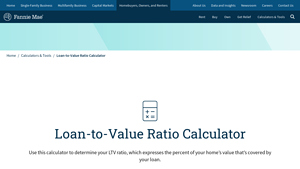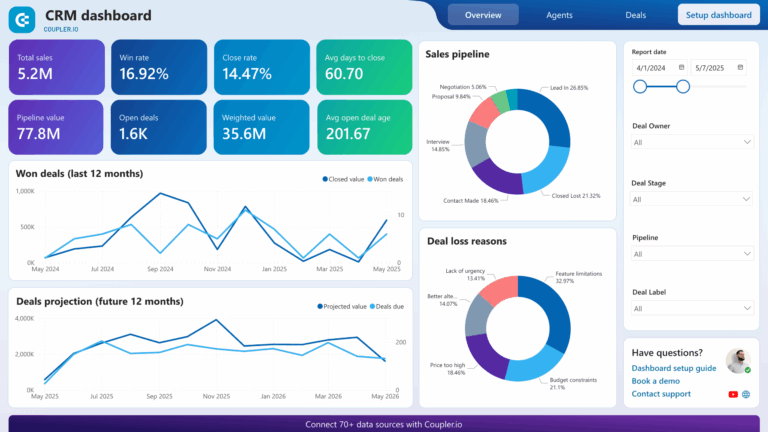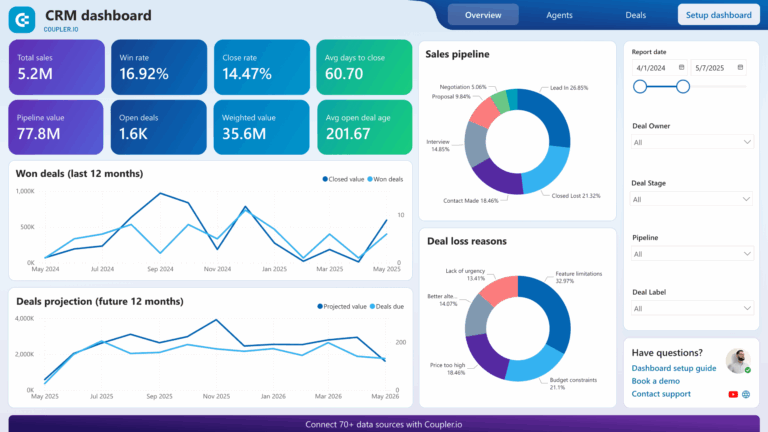Free Ltv Ratio Calculators: Our Top 5 Picks for 2025
Finding the Best Ltv Ratio Calculator: An Introduction
Finding a reliable loan-to-value (LTV) ratio calculator can be a daunting task for many homeowners and potential buyers. With numerous options available online, distinguishing between tools that are accurate, user-friendly, and feature-rich can feel overwhelming. An LTV ratio is crucial for understanding how much equity you have in your home and how it affects your mortgage options, including interest rates and insurance requirements. Therefore, having access to a trustworthy calculator is essential for making informed financial decisions.
This article aims to simplify your search by reviewing and ranking the top LTV ratio calculators available online. Our goal is to save you time and effort by providing a curated list of tools that can help you quickly and accurately assess your LTV ratio. Whether you are considering refinancing, buying a new home, or evaluating your current mortgage situation, the right calculator can make a significant difference in your planning process.
Criteria for Ranking
To ensure our recommendations meet high standards, we evaluated each calculator based on several key criteria:
- Accuracy: We assessed the reliability of the calculations and the clarity of the results provided.
- Ease of Use: User-friendly interfaces that facilitate quick input and results were prioritized.
- Features: Additional functionalities, such as the ability to account for multiple mortgages or provide insights on how LTV affects mortgage rates, were considered.
- Accessibility: We looked for calculators that are freely available and do not require registration or additional information to use.
By focusing on these factors, we aim to present you with the best options for calculating your LTV ratio effectively.
Our Criteria: How We Selected the Top Tools
Criteria for Selecting the Best LTV Ratio Calculators
When it comes to finding the best online tools for calculating the Loan-to-Value (LTV) ratio, several essential criteria must be considered to ensure you choose a reliable and effective calculator. Below are the key factors we evaluated in selecting the top LTV ratio calculators:
-
Accuracy and Reliability
– The primary function of an LTV calculator is to provide accurate results based on the inputs provided. We assessed each tool for its ability to deliver precise calculations reflecting the current market conditions and typical lending standards. The calculators should use straightforward formulas to ensure that users can trust the results. -
Ease of Use
– A user-friendly interface is crucial for any online tool. We looked for calculators that are intuitive and easy to navigate, allowing users to enter their data without confusion. The best tools have clear instructions and require minimal effort to obtain results, making the process quick and efficient. -
Key Features
– Effective LTV calculators should include essential inputs that allow users to customize their calculations. Key features we considered include:- Home Value: The current appraised value of the property.
- Mortgage Balances: Inputs for the first, second, and any additional mortgages or liens on the property.
- Equity Considerations: Options to assess home equity and its impact on the LTV.
- Additional Calculators: Some tools also offer related calculators, such as mortgage affordability or PMI calculations, enhancing their utility.
-
Cost (Free vs. Paid)
– Most users prefer free tools, so we prioritized calculators that do not charge for basic functionalities. We analyzed whether any paid options offered significant advantages over free versions and whether those advantages justified the cost. -
Additional Resources
– Beyond basic calculations, we valued calculators that provided additional educational resources. These could include articles, FAQs, or links to related topics such as mortgage types, refinancing options, and tips for managing home equity. Access to supplementary information helps users make informed decisions. -
Mobile Compatibility
– With many users accessing tools via smartphones and tablets, mobile compatibility is vital. We assessed whether the calculators are responsive and function well on various devices, ensuring that users can calculate their LTV ratios on the go. -
Customer Support
– Reliable customer support can enhance the user experience, especially for those unfamiliar with mortgage calculations. We considered whether the calculators offered accessible support options, such as chat, email, or comprehensive FAQs, to assist users in case of questions or issues.
By evaluating these criteria, we aimed to present a well-rounded selection of the best LTV ratio calculators available online, ensuring that our recommendations meet the needs of a diverse audience looking for reliable mortgage tools.
The Best Ltv Ratio Calculators of 2025
2. Loan
The Loan-to-Value Ratio Calculator by Fannie Mae is a user-friendly tool designed to help homeowners assess the percentage of their property’s value that is financed through a loan. By inputting relevant financial data, users can easily calculate their LTV ratio, a crucial metric for understanding mortgage eligibility and potential refinancing options. This calculator serves as an essential resource for making informed financial decisions in homeownership.
- Website: yourhome.fanniemae.com
- Established: Approx. 30 years (domain registered in 1995)
3. Loan
NerdWallet’s Loan-to-Value Calculator is a valuable tool designed to help users calculate their loan-to-value (LTV) ratio for various scenarios, including home purchases, refinancing, and home equity loans. By inputting the home’s value and the loan amount, users can quickly assess their LTV ratio, which is crucial for understanding borrowing potential and determining mortgage eligibility. This straightforward calculator is essential for anyone navigating the complexities of real estate financing.
- Website: nerdwallet.com
- Established: Approx. 16 years (domain registered in 2009)
4. Loan
The Loan-to-Value Qualification Calculator from mortgagecalculator.org is a valuable tool for homeowners looking to assess their home equity. By estimating the amount of equity built up, users can effectively evaluate whether they qualify to remove Private Mortgage Insurance (PMI) from their current loan. This calculator simplifies the process, providing clear insights that can lead to significant savings on mortgage payments.
- Website: mortgagecalculator.org
- Established: Approx. 21 years (domain registered in 2004)
5. Mortgage Loan To Value (LTV) Calculator
The Mortgage Loan To Value (LTV) Calculator from Robins Financial Credit Union is a valuable tool designed to help users assess their LTV ratio, which is crucial for determining loan eligibility. By inputting property value and loan amount, users can quickly calculate their LTV, gaining insights into potential lending risks. The calculator highlights that a higher LTV ratio may hinder loan approval, with most lenders typically capping acceptable ratios at 95% for borrowers with excellent credit.
- Website: robinsfcu.org
- Established: Approx. 28 years (domain registered in 1997)
How to Get the Most Accurate Results
Double-Check Your Inputs
When using an LTV ratio calculator, the accuracy of your results heavily depends on the information you input. Begin by ensuring that you have the most recent and accurate data regarding your home’s appraised value and your mortgage balances.
-
Home Value: Use a reliable source to estimate your home’s current market value. This could be through recent sales of similar properties in your area, a professional appraisal, or reputable online real estate platforms.
-
Mortgage Balances: Gather accurate figures for your existing mortgage(s). This includes the principal balance and any other liens against your property. It’s crucial to have these numbers up-to-date to avoid miscalculating your LTV ratio.
Understand the Underlying Assumptions
Every LTV calculator operates under specific assumptions that can affect the results. Familiarize yourself with these assumptions to better interpret the results:
-
Market Conditions: Many calculators may assume stable market conditions. If the housing market is fluctuating, your home’s value might not reflect the calculator’s estimates.
-
Loan Types: Different lenders may have varying criteria for LTV ratios based on loan types (e.g., FHA, conventional, VA). Understand which type of loan you are considering, as this can affect the implications of your LTV ratio.
-
Equity Calculation: Know how equity is calculated in relation to your home’s value. Some calculators may only consider first mortgages, while others might factor in second mortgages or lines of credit.
Use Multiple Tools for Comparison
Not all LTV calculators are created equal. To get a comprehensive understanding of your financial standing, consider using multiple calculators. This can help you identify discrepancies and give you a broader perspective on your LTV ratio.
-
Cross-Verification: By using several calculators, you can verify the accuracy of your results. If one calculator shows a significantly different LTV ratio, investigate why that might be the case.
-
Explore Additional Features: Some calculators offer additional tools and resources, such as mortgage rate comparisons or refinancing options. Utilizing these can enhance your decision-making process.
Keep an Eye on Changes
The financial landscape is ever-evolving, and so are the variables that affect your LTV ratio. Stay informed about changes in interest rates, housing market trends, and lending practices.
-
Regular Updates: Regularly revisit your calculations, especially if you’re considering refinancing or purchasing a new home. Changes in your mortgage balance or home value can significantly impact your LTV ratio.
-
Consult Professionals: If you’re unsure about the calculations or need personalized advice, consider consulting a mortgage professional. They can provide insights tailored to your specific financial situation and help you understand the implications of your LTV ratio on your borrowing power.
By following these guidelines, you can ensure that you get the most accurate and meaningful results from LTV ratio calculators, helping you make informed financial decisions.
Frequently Asked Questions (FAQs)
1. What is an LTV ratio calculator and how does it work?
An LTV (Loan-to-Value) ratio calculator is a tool used to determine the ratio of a loan amount to the appraised value of a property. It works by taking the total amount of your mortgage and dividing it by the property’s value, then multiplying the result by 100 to express it as a percentage. This percentage helps lenders assess the risk involved in lending money for a mortgage or refinancing.
2. Why is the LTV ratio important?
The LTV ratio is crucial because it helps lenders evaluate the risk of a mortgage. A lower LTV ratio generally indicates less risk, which can lead to better mortgage rates and terms. For example, an LTV of 80% or lower is often preferred by lenders, as it signifies that the borrower has a substantial equity stake in the property, reducing the lender’s exposure in case of default.
3. How can I accurately input values into the LTV calculator?
To get accurate results from an LTV calculator, you should input the current appraised value of your home and the total amount of your mortgage(s). This includes any first and second mortgages, as well as any other liens. If you’re unsure about the appraised value, consider looking at recent sales of similar properties in your area.
4. What should I do if my LTV ratio is too high?
If your LTV ratio is higher than 80%, you might face higher interest rates or be required to pay for private mortgage insurance (PMI). To improve your LTV, consider making a larger down payment, refinancing your mortgage to reduce the principal, or increasing the value of your home through renovations. Alternatively, you may also choose to wait until your home appreciates in value.
5. Can I use an LTV calculator for purposes other than mortgages?
Yes, an LTV calculator can be useful beyond just mortgage applications. It can help homeowners understand how much equity they have in their property, which is valuable when considering home equity loans or lines of credit. Additionally, it can assist in evaluating refinancing options or determining the feasibility of selling a home based on existing debts.
Important Disclaimer
⚠️ Important Disclaimer
The information and reviews in this guide are for educational purposes only and are based on publicly available information. We are not affiliated with any of the tools mentioned. Features and pricing may change. Always conduct your own research before choosing a tool for your needs.






